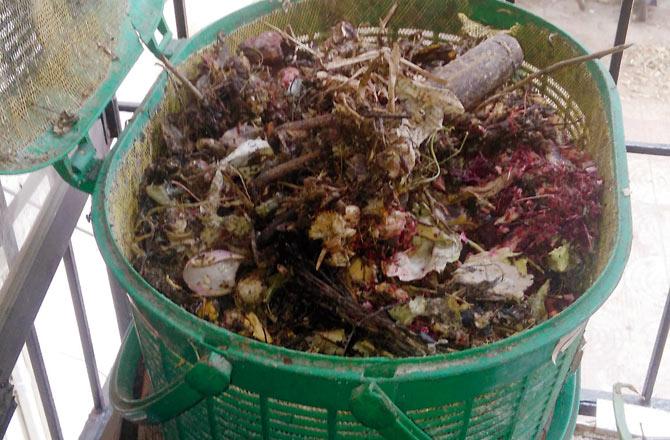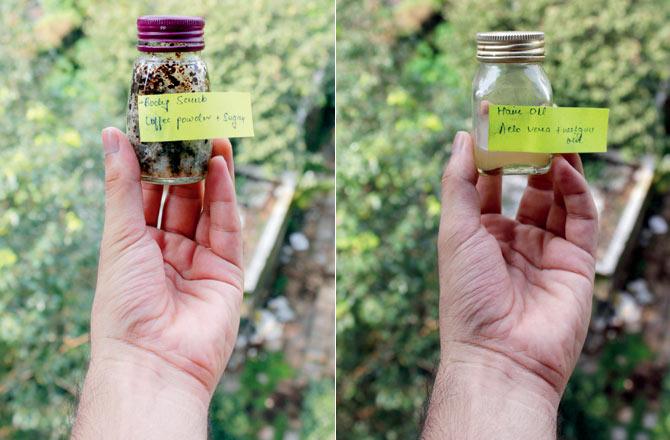Single-use items in the age of stockpiling can cause harm to the environment. A Mumbaikar leading a zero-waste lifestyle tells you how to take the eco-friendly route

Earlier this month, in the United States, major F&B companies announced that they were stopping the use of reusable mugs as a precautionary measure to maintain hygiene standards. While videos of clear seas and blue skies surfaced due to the halt of human activity, Hong Kong's beaches were piled up with single-use face masks. The current global scenario forces us to rethink our lifestyle choices, but the environment shouldn't be a second thought. We invited Sushank Tomar, a Thane resident who practises a zero-waste lifestyle to share tips on minimising environmental damage while at home.
ADVERTISEMENT
Do a waste audit: Tomar, 23, who is part of a youth organisation called Muse Foundation that works on different aspects of the society including menstrual hygiene and environmental awareness, says that such a lifestyle demands individuals to come out of their comfort zone. "It's not convenient in the initial stages. There are some things like a sanitiser or a smartphone for which there might not be a replacement. But it's definitely possible to sustain it," he says. In a scenario where garbage collectors might be off duty, it is important to audit your waste yourself ie identify the kind of waste you generate. The simplest way is to bifurcate material into wet and dry categories. "If your dry waste comprises 50 per cent plastic and 30 per cent paper, for instance, find alternatives for those categories first," he suggests.

Tomar's compost bin at home
Compost wet waste: Take an old container and make about eight holes across the sides and the bottom. The first layer should be dry waste comprising coconut husk, dry leaves and grass, and cardboard. After ensuring the layer is thick enough, add your wet waste ie organic items. Then add a layer of dry waste again so it becomes like a sandwich. Composting entails carefully studying the composition of carbon (browns) and nitrogen (greens). The ideal ratio is 25-35 parts of carbon for one part of nitrogen. Tomar cautions, "It should not be too dry or too wet. If it's the latter then it will begin to stink which indicates that the nitrogen quantity is higher. So, you'll have to add dry leaves."
Make cloth masks: To wear a mask or not to wear one has perhaps been the most-asked question this month. But choosing a disposable one when you aren't at risk makes no sense. "I use cloth masks and sterilise them. My friends have made masks with two layers of fabric as well. The biggest complaint related to a zero-waste lifestyle was that people don't have time. But now they do," Tomar says. So, if you have some sewing skills, just make a mask.

Sushank Tomar makes his own hair oil and body scrub. While the first comprises aloe vera and Nilgiri oil, the later is made from coffee powder and brown sugar. He advises people to use materials that suit them
Differentiate between recycle and reuse: Tomar maintains that going zero waste means completely opting out of non-biodegradable items. "There's this misconception that if you consume packets of chips but later recycle the packaging, you're doing a good thing. But you need to know that there's a limit to which plastic can be recycled, too," he says. Recycling, he adds, requires an item to be 100 per cent in its purest form. So, while a PET bottle can be recycled, tetra packs comprising plastic and paper cannot. Also, online resources related to going zero waste often don't make sense in an Indian context. Tomar advising people to become local explorers, adds, "In Thane, I scoured shops that sell eatables like chips and pasta in bulk, and those who use plastic-free packaging for their goods. It's the good ole Indian concept of relying on a kiranawala."

Sushank Tomar
Catch up on all the latest Mumbai news, crime news, current affairs, and also a complete guide on Mumbai from food to things to do and events across the city here. Also downloadmid-day Android and iOS apps to get latest updates
 Subscribe today by clicking the link and stay updated with the latest news!" Click here!
Subscribe today by clicking the link and stay updated with the latest news!" Click here!






